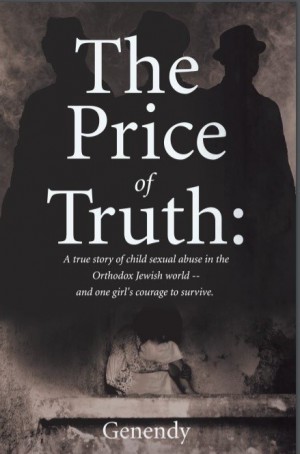
Image: Flickr/adriana komura
Manny Waks is the author of the recently published memoir Who Gave You Permission?: the memoir of a child sexual-abuse survivor who fought back.
For survivors of child sexual abuse within the Jewish community, especially those abused within an institutional setting, Jewish holidays can be particularly challenging. The desire to survive this period — to literally remain alive — may be a daily, if not an hourly struggle.
Unfortunately, based on personal experience, I fully understand some of these challenges.
I was raised in an ultra-Orthodox Chabad family in Melbourne, Australia. Between the ages of around eleven to fourteen and a half — some of the most important years of a religious child, which include the venerated bat mitzvah — I was sexually abused by two different men. Some of the abuse took place inside places of religious significance, including a synagogue and a mikvah — a ritual bath.
During the period of abuse and its aftermath, I rebelled against everything I knew, not least my religion.
My experience of sexual abuse left a lasting impact on my Jewish identity: The place I feel most uncomfortable in the world is inside a synagogue. I instinctively tune out most religious discussions. I am unsure whether I believe in God.
Yet, forgiveness — as I was taught at my childhood school, Yeshivah College, the venue of some of my abuse — is a core Jewish value.
It isn’t easy to forgive, especially when the person seeking forgiveness has caused you profound pain. A mere apology, we think, cannot possibly be sufficient. But forgiveness is necessary, especially in the context of significant injustices. Moreover, it may be a powerful tool, both for the one giving the apology and its recipient.
Over the years, I have received and accepted dozens of apologies, including from those in the Orthodox community. I have sought to forgive the many who have wronged me and others: for the cover-ups, the intimidation, the inaction. My only condition has been that the apology be genuine, which has not necessarily always been easy to discern.
All those who have apologized should consider: Was that one-off apology or public statement sufficient? If you claim to follow halach — Jewish law — was your apology consistent with halachik requirements? Can you be doing any more to alleviate the pain you caused your victims?
In this context, the Australian Rabbi Moshe Gutnick’s 2013 powerful Yom Kippur apology on behalf of the Orthodox Rabbinate deserves a mention. It demonstrated that the Rabbinate was (belatedly) acknowledging some of its gravest failures. This apology had an incredibly positive impact for many around the world.
However, based on recent developments — the hiring, for example, by an orthodox Melbourne school of a rabbi who was forced to resign from his community leadership positions after his attacks on victims and their families, and the continued safe haven offered by Israeli courts to a fugitive Melbourne school principal who abused several of her students — we still have a very long way to go.
Despite the ongoing personal cost, I will continue to advocate for justice, accountability, and prevention, because I have witnessed the significant progress that is possible.
Perhaps, at some point, my fellow victims and I may finally be able to rejoin the broader community in holiday celebrations.
Manny Waks is currently CEO of Kol v’Oz, an international organization with an office in New York, that he established to address child sexual abuse in the global Jewish community.



